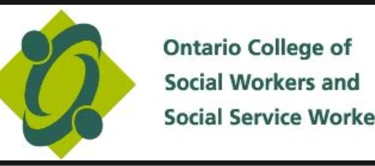Why We Lie to Ourselves
Self-deception is a protective mechanism where individuals distort facts to shield themselves from emotional pain and fear. Often driven by cognitive dissonance, this behavior helps reconcile conflicting beliefs by rationalizing actions and attitudes. Recognizing and addressing self-deception through mindfulness and self-reflection can lead to more authentic living and healthier relationships.
7/28/20244 min read


Understanding Why We Lie to Ourselves
Self-deception is a complex psychological phenomenon that many individuals grapple with, often subconsciously. At its core, lying to oneself is a mechanism designed to protect the individual from emotional pain, disappointment, and fear. One of the primary psychological theories that explain this behavior is cognitive dissonance. Cognitive dissonance occurs when a person holds two conflicting beliefs or attitudes simultaneously, resulting in significant psychological discomfort. To alleviate this discomfort, individuals may distort facts, reject new information, or rationalize their behavior to make one of the conflicting beliefs more palatable.
For instance, consider a person who prides themselves on maintaining a healthy lifestyle but frequently indulges in unhealthy food. The conflict between their self-image and their actions creates dissonance. To reduce this discomfort, they might convince themselves that the occasional unhealthy meal doesn't truly impact their overall health, thus lying to themselves to maintain a consistent self-image.
Societal pressures also play a substantial role in self-deception. From a young age, individuals are often taught to conform to societal norms and expectations, which can lead to internal conflicts between one's true desires and the need to fit in. Personal insecurities further complicate this dynamic, as individuals may lie to themselves to appear more competent, attractive, or successful than they believe themselves to be. These lies serve as a protective barrier against the harsh judgments of society and the internalized fears of not measuring up.
Real-life examples abound in everyday situations. A professional might convince themselves that working long hours is necessary for success, even when it compromises their health and personal relationships. Similarly, someone in an unfulfilling relationship might rationalize staying with their partner by downplaying their dissatisfaction, fearing loneliness or societal judgment. Through these examples and psychological theories, it becomes evident that self-deception is a multifaceted issue, deeply rooted in our need to protect our self-esteem and navigate a complex social landscape.
Recognizing When You Are Lying to Yourself
Self-deception is a subtle and pervasive issue that can significantly hinder personal growth and honest relationships. Recognizing the signs and symptoms of self-deception is the first crucial step towards cultivating an authentic connection with oneself and the outside world. Often, self-deception manifests through various patterns of behavior such as procrastination, rationalization, and avoidance.
Procrastination is a common indicator that you might be lying to yourself. When you constantly delay tasks or decisions, it often stems from deeper issues such as fear of failure or a lack of confidence in your abilities. Rationalization, on the other hand, involves creating excuses or justifications for actions or inactions. For instance, you might convince yourself that you don't have time to exercise, when in reality, it's a way to avoid discomfort or challenge.
Avoidance is another key sign of self-deception. This can include avoiding difficult conversations, sidestepping personal challenges, or ignoring responsibilities. Avoidance allows temporary relief but ultimately prevents you from addressing the underlying issues that need attention.
To combat self-deception, self-reflection techniques and mindfulness practices can be incredibly effective. Regular self-reflection allows you to examine your thoughts, feelings, and behaviors objectively. Journaling is a powerful tool in this regard, providing a structured way to explore your inner world and identify patterns of self-deception. Additionally, mindfulness practices such as meditation can help you stay present and aware, reducing the likelihood of falling into self-deceptive patterns.
Practical exercises can further aid in recognizing when you are not being truthful with yourself. For instance, consider writing down a recent decision and analyzing the motivations behind it. Were you honest about your reasons, or did you rationalize to avoid discomfort? Real-life scenarios, such as reflecting on a time when you procrastinated, can also provide valuable insights.
By becoming more aware of these indicators and employing self-reflection and mindfulness techniques, you can begin to dismantle the barriers of self-deception, paving the way for more honest and fulfilling relationships with yourself and others.
Strategies to Break the Habit of Self-Deception
Breaking the habit of self-deception requires a multifaceted approach that integrates various strategies aimed at fostering honesty within oneself and with others. One fundamental strategy is setting realistic goals. By establishing attainable objectives, you avoid the pitfalls of overpromising and underdelivering, which often lead to self-deception. Realistic goals encourage a balanced perspective, allowing you to acknowledge your strengths and limitations honestly.
Practicing self-compassion is another crucial technique. Self-compassion involves treating yourself with kindness and understanding during moments of failure or inadequacy. This practice helps mitigate the tendency to lie to oneself as a defensive mechanism. By embracing self-compassion, you create a mental environment where honesty can flourish without the fear of harsh self-criticism.
Seeking feedback from trusted friends or professionals is also instrumental in combating self-deception. External perspectives provide valuable insights that you might overlook due to personal biases. Trusted individuals can highlight inconsistencies between your perceptions and reality, prompting you to reassess and adjust your views accordingly. Professional guidance, such as therapy or counseling, offers structured support in navigating and understanding complex self-deceptive behaviors.
Creating a supportive environment that encourages honesty and growth is vital. Surrounding yourself with individuals who value transparency fosters a culture of openness. This supportive network can reinforce your commitment to honesty by providing both accountability and encouragement. Additionally, engaging in regular self-reflection practices, such as journaling or mindfulness meditation, can help you stay attuned to your inner truth and identify areas where self-deception might occur.
By implementing these strategies, you can develop the courage to face uncomfortable truths and foster a more authentic and fulfilling life. The journey towards self-honesty is continuous and requires persistent effort, but with dedication and the right support, it is entirely achievable.
Phone: 437-747-6416
Get in Touch
Toronto based office, offering virtual services throughout Ontario








